I started the night with the slightly-more-than-half-full moon directly overhead, which is a prime spot for getting good images. The Tycho & Clavius area was my first target. Below is my first image, recorded at the Celestron C8's native focal length of 2032mm at f/10:
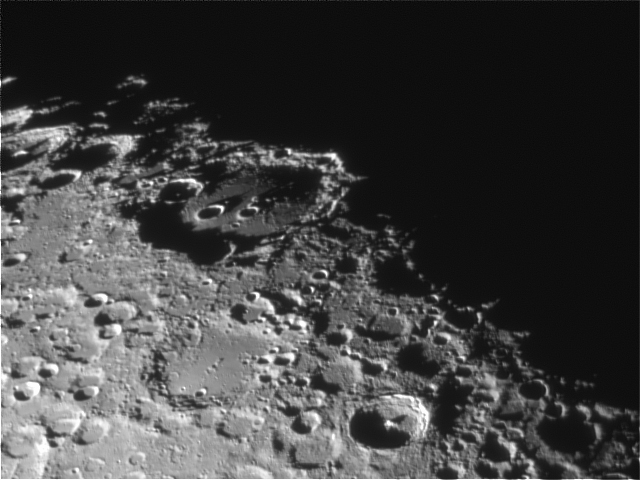
To get closer in, you need to increase focal length. A barlow is the most common method of doing this and they come in various power ratings and quality levels. My barlow is a 2" Siebert telecentric model with a 2X power rating. This doubles my focal length and allows some really close-up viewing of the moon. The power can be further increased by adding an extension between the back of the barlow and the camera. Here's a close up of Clavius using this method with a 2" extension:

As you increase focal length, the image becomes darker and movement from atmospheric distortion gets magnified even more. It gets really difficult to capture a good image at this focal length. Below is another extreme close up, this is Tycho:
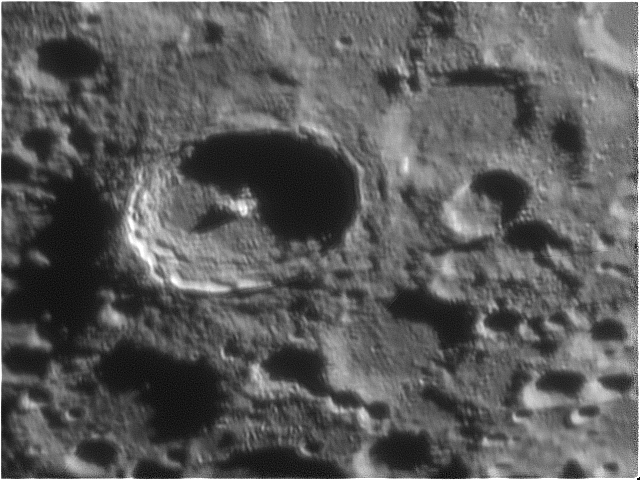
Without the extension the same area looks like this:
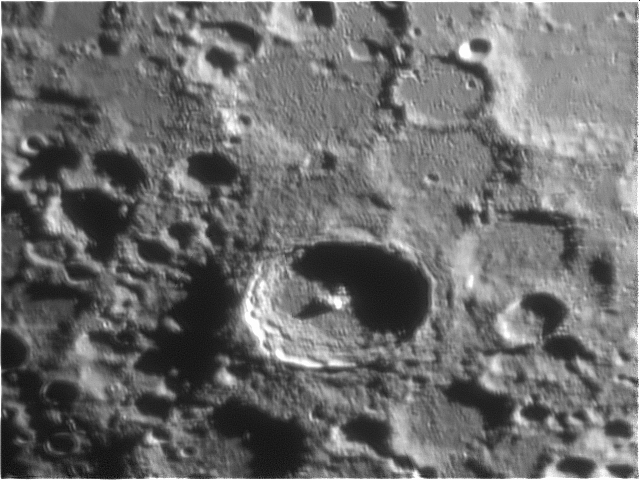
The same effect can be seen here on the crater Plato. Here's an image with the 2X barlow and 2" extension:
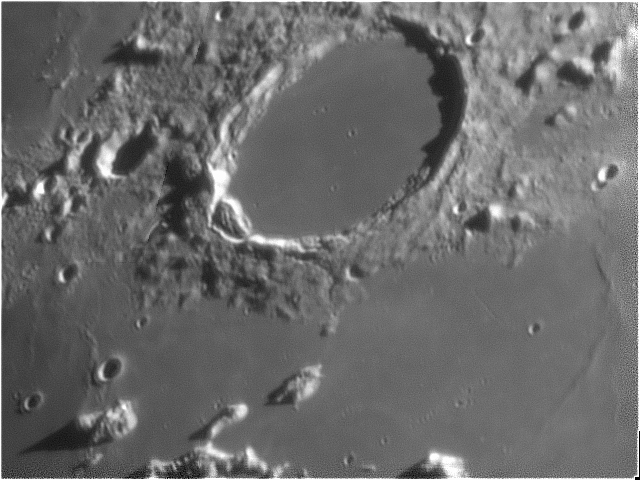
Removing the extension increases the field of view as seen below:
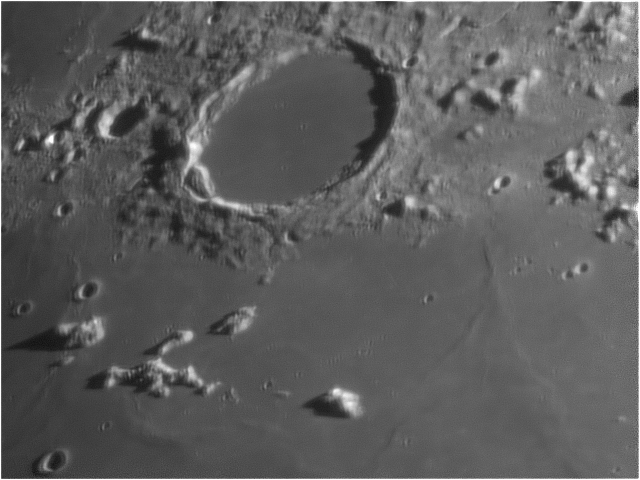
Next, I recorded several AVI's around the crater Copernicus and created a mosaic in Photoshop:
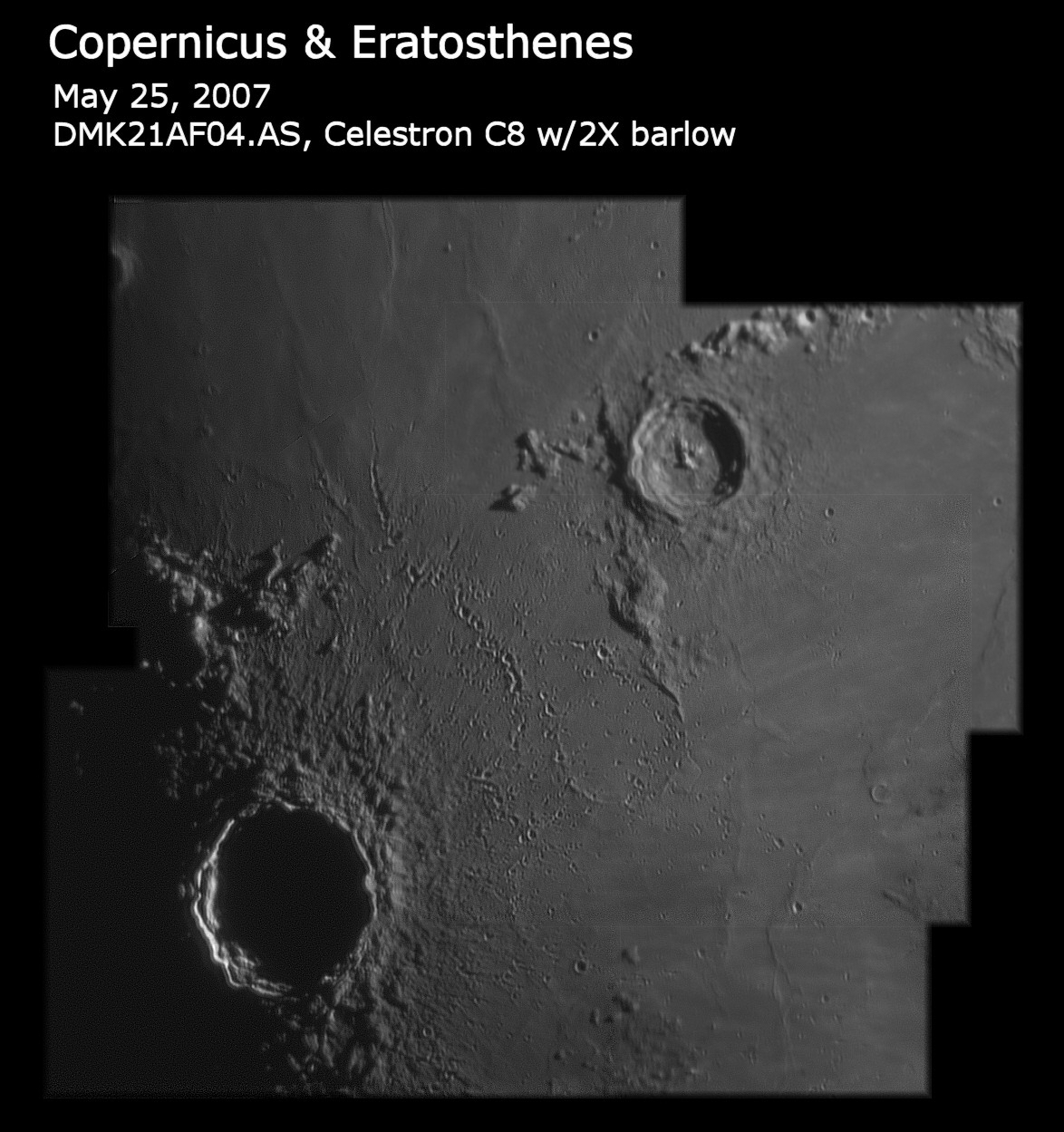
Here's some other highlights from the evening:
Craters Walter & Lexell:
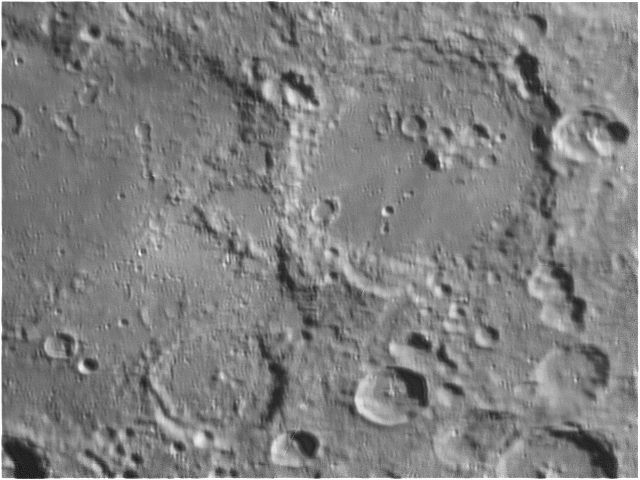
Craters Stöfler & Faraday:

Craters Saussure, Orontius, Huggins, Nasiredden, & Miller:
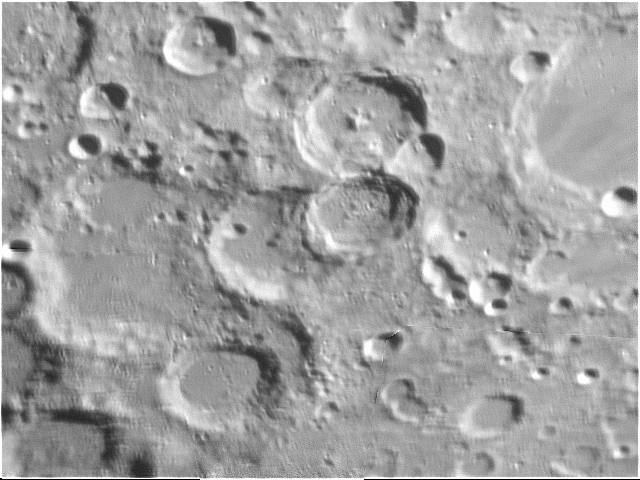
Rupus Recta:
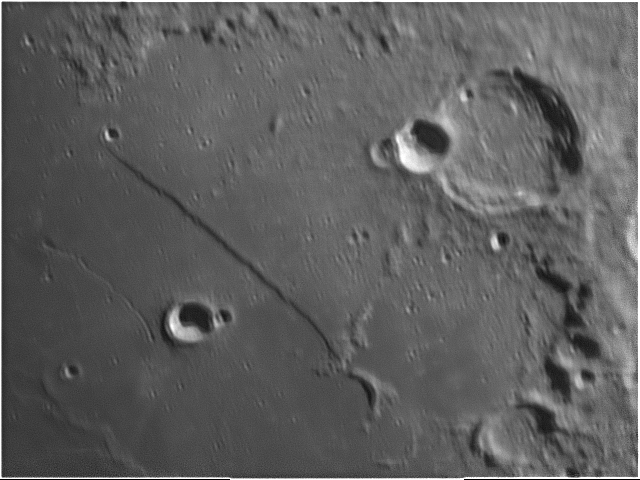
Craters Purbach & Thebit:
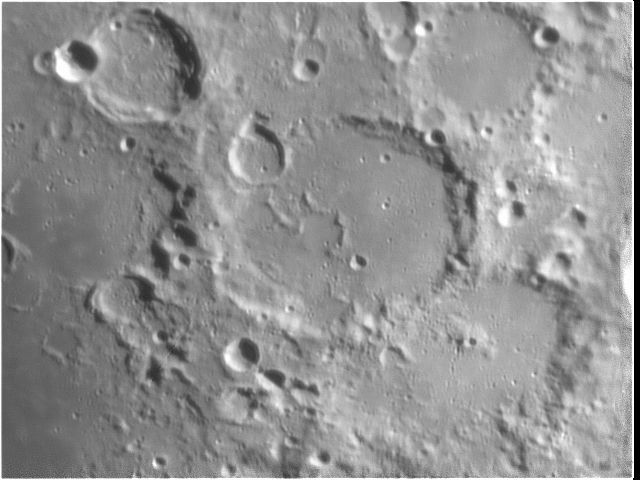
Craters Ptolemaeus & Herschel:
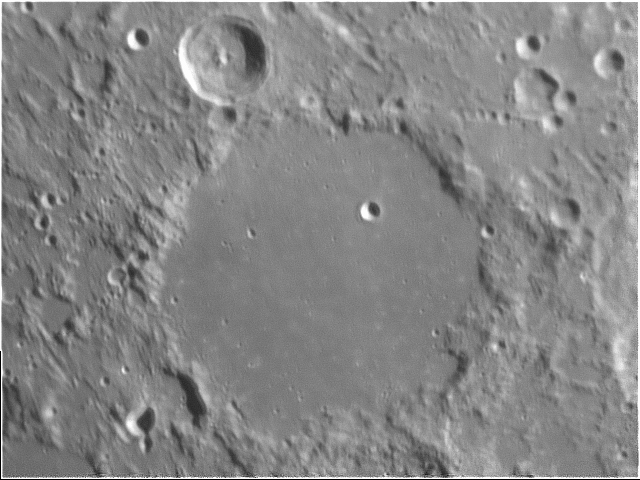
Craters Pitatus, Guaricus, Wurzelbauer, & Hesiodus:
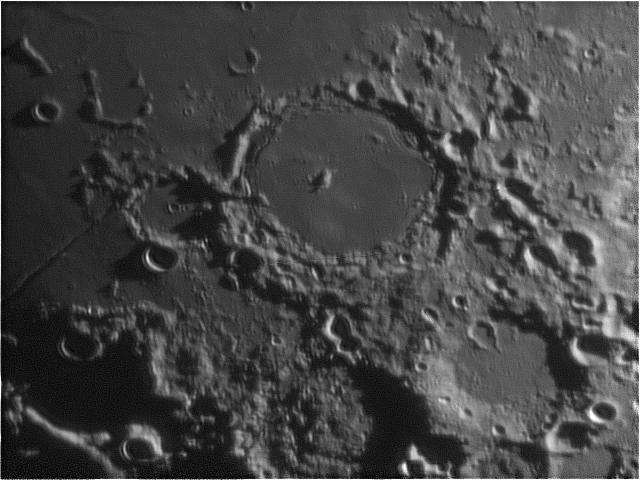
Craters Fra Mauro, Bonpland, & Parry:

Craters Arzachel, Alpetragius, & Thebit:

No comments:
Post a Comment